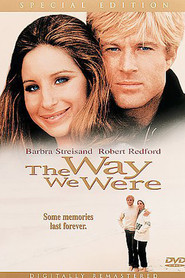
For years now, a sad, steady flow of articles, books, and studies has documented the rise of the “disposable academic,” the growing underclass of poorly paid, uninsured PhDs who do the bulk of college teaching but have no real chance of ever landing a secure academic job. This is a tragedy, the argument goes, not […]
Read More
Here is a story from the Baton Rouge Advocate that confirms the decline of the humanities in the state system (although cuts struck deep into the sciences and education as well). Officials reviewed hundreds of programs in state colleges and universities, judging them by, among other things, the number of students they graduated each year. […]
Read More
A few days ago, I received two similar letters from parents asking a very common question, if the quality of college education is declining as rapidly as many people say, where do you think my daughter or son should go to school? I sent a note putting this question to Peter Wood, president of the […]
Read More
John Allison, former CEO of BB&T bank was, instead, referred to as ‘the late banker’ in the April 25th story here on big donors to colleges and universities. He is very much alive. The error was mine. My apologies.
Read More
Duke president Richard Brodhead has presided over what could charitably be termed a checkered administration. His botched handling of the lacrosse case led to a reported $18 million settlement with the falsely accused players, as well as millions of dollars in legal fees to fight off (thus far unsuccessfully) a civil rights lawsuit filed by […]
Read More
From reading news stories about multimillion-dollar gifts to universities, it’s easy to get the impression that the donors are mostly rich people with pronounced ideological agendas–or else they wouldn’t open their wallets so readily. In April 2010, for example, the billionaire-financier George Soros, known for his funding of progressive causes and his efforts to defeat George […]
Read More
I was glad to see my article on the CCCC conference generate so much interest and commentary. I do feel a need to respond to a few of them. In response to the comments accusing me of cherry-picking among the panels and the speakers on the site Tedx, I suggest that all go to the […]
Read More
Some readers of Minding the Campus may have noticed the little fracas at University of Iowa between College Republicans and anthropology/women’s studies professor Ellen Lewin. You can read about it in any of the many stories listed on this Google news page. The details are simple. UI College Republicans sent out a mass email, approved […]
Read More
After spending four depressing days this month at a meeting of 3,000 writing teachers in Atlanta, I can tell you that their parent group, the Conference on College Composition and Communication, is not really interested in teaching students to write and communicate clearly. The group’s agenda, clear to me after sampling as many of the […]
Read More
Back in 2009 the Medill Innocence Project, a program administered by Northwestern University’s highly regarded Medill Journalism School, looked like a victim of a vindictive and over-zealous prosecutor at the Illinois state’s attorney’s office Students enrolled from 2003-2006 in an undergraduate investigative reporting class at the journalism school that tied into the Innocence Project–which is […]
Read More
Earlier this month, shortly after the announcement of a sexual harassment investigation targeting Yale University, the Department of Education’s Office of Civil Rights issued a “Dear Colleague Letter” to colleges on the handling of sexual violence cases. On the same day, April 4, Vice President Joe Biden kicked off a nationwide “awareness campaign” on schools’ […]
Read More
Many people, some conservatives included, say we need to get ideology out of the college classroom. Some professors say proudly, “my students never come to know where I stand.” I practice an opposite approach. I tell students that I am a free-market economist, a classical liberal or libertarian. And I am not suggesting that […]
Read More
Yesterday’s brief account here on Bowdoin College and the apparent disarray of its history department drew a lot of attention, though we did not link to the full original article. The reason we did not link is that the text from the Claremont Review of Books appeared to be proprietary–sent only to subscribers for their […]
Read More
A column by Katherine Kersten of the Minneapolis Star-Tribune reports that the financially strapped Lakeville, Minn., school district (94 teachers let go) found enough money to send a delegation to the annual state “White Privilege Conference” now going on in Bloomington. Carol Iannone at Phi Beta Cons picked up the story, as did blogger Hans […]
Read More
What do we do about the adjunct problem? Everybody knows it exists, and everybody agrees on its elements. Well-qualified, talented, and conscientious people teach multiple courses, sometimes on different campuses, at a few thousand dollars per course. Add up class prep and grading hours and their labor sometimes falls below minimum wage, and they don’t […]
Read More
“There are any number of courses that deal with some group aspect of America, but virtually none that deals with America as a whole. For example, there is African-American history from 1619 to 1865 and from 1865 to the present, but there is no comparable sequence on America. Every course is social or cultural history that looks at the world […]
Read More
Overshadowed by the big political confrontation in Wisconsin is a higher-education story of note: The highly regarded “flagship” Madison campus of the University of Wisconsin seeks permission to secede from the rest of the state public higher education system (yet remain under the state’s oversight and subsidization). While this is being justified now by the […]
Read More
I head an organization, the National Association of Scholars (NAS), that is often accused by its critics on the academic left of nostalgia for days when higher education was an exclusive club for the privileged. The accusation is false. NAS focuses on the enduring principles of the university: rational inquiry, liberal learning, and academic freedom. […]
Read More
The academic gender wars are back in the news, with the Department of Education’s Office of Civil Rights announcing an investigation into a Title IX complaint against Yale University. Sixteen current and former Yale students claim that the university discriminates against women by allowing a sexually hostile environment to flourish. Is there really a problem […]
Read More
My article here, “Professors Should Dress like Professionals,” speculated that the loss of classroom authority was at least partially traceable to a decline in sartorial standards among the professoriate. More, however, is involved than shabby attire. It is the systematic attempt to demolish the line between teacher and students that is the culprit. Consider […]
Read More
The Chronicle of Higher Education‘s recently released annual survey of the salaries of university presidents provides empirical support for the proposition that higher education today appears to be less about achieving lofty goals like disseminating knowledge, building character, promoting virtue and expanding the frontiers of what humans can do than it is about something far more mundane: keeping […]
Read More
One feature of academia’s less reputable quarters is the imperative to shun the obvious and prosaic, even when the obvious and prosaic happen to be true. As Theodore Dalrymple noted in his review of Thomas Sowell’s Intellectuals and Society, Intellectuals, like everyone else, live and work in a marketplace. In order to get noticed they […]
Read More
Judged by the recent avalanche of autopsy-like books, American higher education appears troubled. Alleged evil-doers abound, but one culprit escapes unnoticed–the horrific sartorial habits of many of today’s professors. Don’t laugh. As Oscar Wilde brilliantly observed, only shallow people do not judge by appearances. Indeed, I would argue that much of what plagues today’s academy […]
Read More
The American Federation of Teachers has just issued a report that outlines the institutional conditions of “student success,” including the role of the faculty. (The report itself is here.) Much of the document is predictable. The criticism of reigning assessments of student learning and graduation rehearse familiar arguments about “one-size-fits-all” and “not-all-learning-is-measurable” and “insufficient-funding-for-authentic-assessment.” And, […]
Read More
A recently-decided case involving academic freedom all but defines a frivolous lawsuit. The website for the Center for Holocaust and Genocide Studies (CHGS), based at the University of Minnesota, contained an item noting “unreliable websites” on Holocaust issues. The link’s purpose–to discourage students from using these sites in their research–was clearly academic. (The site’s wording: […]
Read More